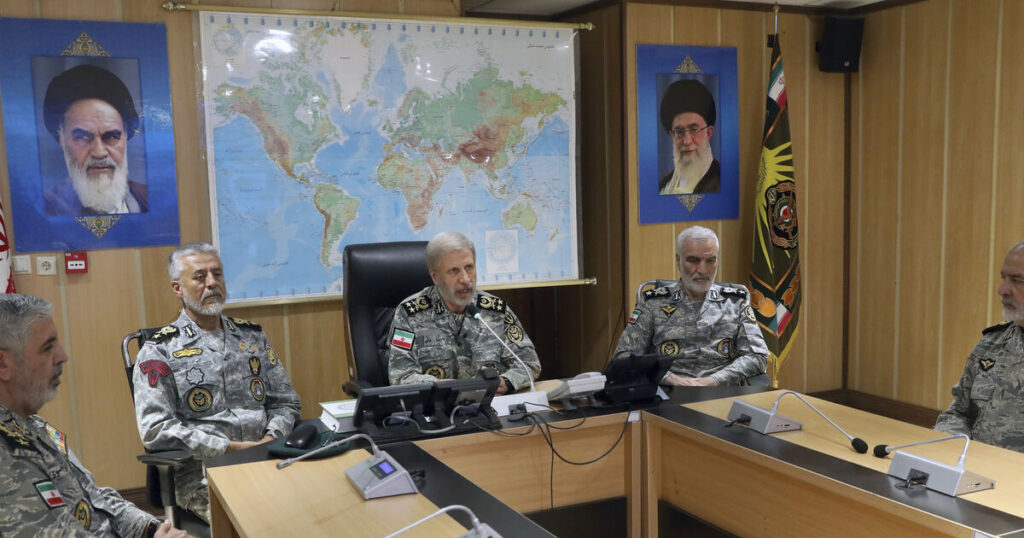Iran has launched a barrage of missiles and drones targeting Israel, while simultaneously warning the United States that its military is now authorized to strike American assets following the Trump administration’s significant attacks on Iranian nuclear facilities.
Israel has reported its defense systems are actively working to intercept the incoming projectiles, which appear to be aimed at locations in the north and central regions of the country. Citizens have been advised to seek shelter.
Iran has characterized the assault as a continuation of “True Promise 3,” an operation purportedly targeting the Israeli cities of Haifa and Tel Aviv, according to reports from Iranian state media.
At present, there have been no initial reports of any resulting damage.
The attack follows the United States’ intervention in the Israeli-Iranian conflict yesterday, as the US launched direct strikes against Iranian nuclear locations, sparking heightened fears of further regional escalation.
Iran has stated that the US action of attacking three sites with missiles and heavy bunker-buster bombs constituted crossing “a very big red line.”
On Monday, Iranian General Abdolrahim Mousavi, Chief of Joint Staff of Armed Forces, cautioned Washington that its strikes have granted Iranian forces “a free hand” to retaliate “against US interests and its army.”
Gen. Mousavi described the American attack as an infringement on Iran’s sovereignty, likening it to an invasion of the country, as reported by the Iranian state news agency IRNA.
The American attacks on Iran have been met with widespread international calls for de-escalation and a return to diplomatic efforts to resolve the burgeoning conflict.
On Monday, the European Union’s top diplomat affirmed that the bloc remains “very much focused on the diplomatic solution.”
“The concerns of retaliation and this war escalating are huge,” stated Kaja Kallas at the commencement of a foreign ministers’ meeting in Brussels, where the situation in Iran has taken precedence.
“Especially closing of the Strait of Hormuz by Iran is something that would be extremely dangerous and not good for anybody,” Ms. Kallas added, emphasizing the importance of the crucial maritime route for oil transportation.
Following Sunday’s attacks, Iranian officials reiterated long-standing threats to potentially close off the key shipping lane.
Meanwhile, Iranian Foreign Minister Abbas Araghchi is scheduled to meet with Russian President Vladimir Putin in Moscow – Russia remains a key ally to Iran.


